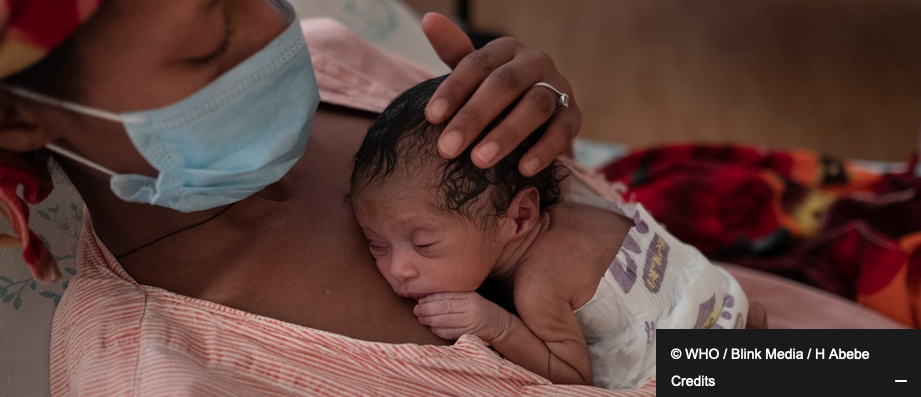(Eagle News) — The latest guidelines released by the World Health Organization in caring for premature and small babies mark a major shift from earlier guidance and common clinical practice.
The health agency strongly recommends skin-to-skin contact with the mother should start immediately after birth, without any initial period in an incubator.
The WHO recommends kangaroo mother care for all preterm or low-birth-weight infants as a way to improve survival and health outcomes. The guidelines defined preterm infants as those born before 37 weeks of pregnancy and low-birth-weight babes as those born under 2.5 kg (5 lbs 8 oz).
Kangaroo mother care involves using a special sling or wrap to keep the baby’s skin in contact with the caregiver’s skin for as many hours as possible, along with exclusive breastfeeding.

Because preterm babies lack body fat, many have problems regulating their own temperature when they are born and often require medical assistance with breathing.
Previous recommendations and practice suggest that the baby be separated from the mother and stabilized in an incubator or warmer for about 3-7 days. However, research has now shown that starting kangaroo mother care immediately after birth has the potential to save up to 150,000 lives a year, reduces infections and hypothermia, and improves feeding.
“The first embrace with a parent is not only emotionally important, but also absolutely critical for improving chances of survival and health outcomes for small and premature babies,” said Dr Karen Edmond, Medical Officer for Newborn Health at WHO. “Through COVID-19 times, we know that many women were unnecessarily separated from their babies, which could be catastrophic for the health of babies born early or small. These new guidelines stress the need to provide care for families and preterm babies together as a unit, and ensure parents get the best possible support through what is often a uniquely stressful and anxious time.”
Prematurity is considered an urgent public health issue with an estimated 15 million premature babies born every year, amounting to more than 1 in 10 of all births globally. The numbers increase to over 20 million babies when when low birthweight is factored into the equation.
According to the WHO, although prematurity is now the leading cause of death of children under five, most preterm babies can be saved through “feasible, cost-effective measures including quality care before, during and after childbirth, prevention and management of common infections, and kangaroo mother care.”
“Preterm babies can survive, thrive, and change the world – but each baby must be given that chance,” said Dr Tedros Adhanom Ghebreyesus, WHO Director-General. “These guidelines show that improving outcomes for these tiny babies is not always about providing the most high-tech solutions, but rather ensuring access to essential healthcare that is centered around the needs of families.”
(Eagle News Service)
